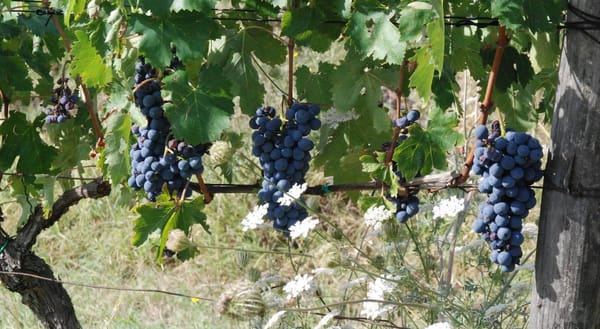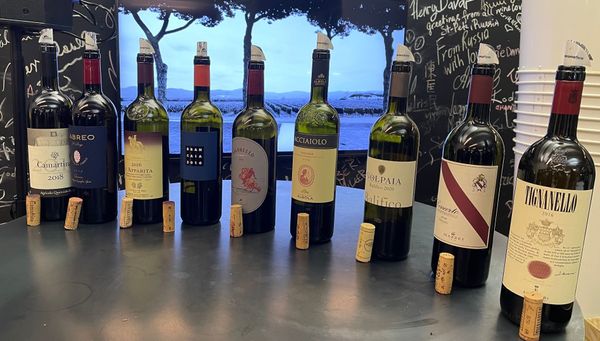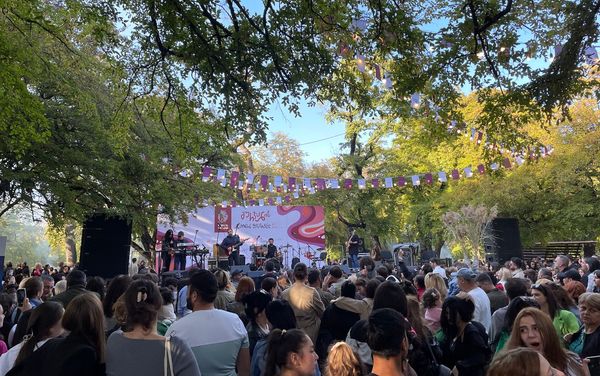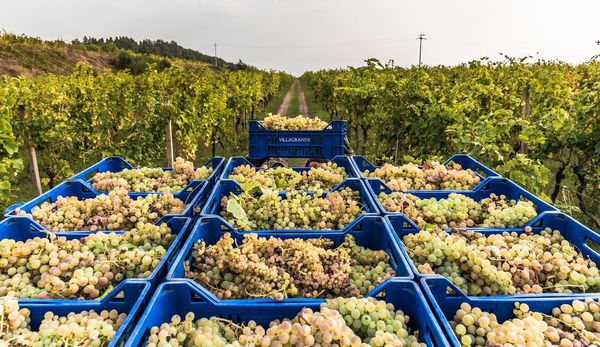📝 Timeless Gavi

You can also read this article on vinorandum.com > here
The Gavi denomination knocks out around six million bottles a year. The bulk of this output is undertaken by large bottlers, many of them focussed on interests elsewhere in Piedmont - Asti in particular. This approach has done much to depress prices and in turn, foster a reputation for one dimensional, often bland and insipid wines. A vibrant scene of under the radar artisan winemakers tells a different story however, reminding us that Gavi is one of Italy’s timeless wines.
To quote Francesca Poggio of Il Poggio, “there is Gavi, and there is Gavi”. Francesca’s family have been growing Cortese and producing wines for more than half a century. Her small, but developing, estate has always focussed on producing premium quality Gavi, on crafting the kind of wine that speaks of its terroir. She grows Cortese in the mineral rich soils of Rovereto, the only official cru permitted on the label by the consorzio.
A recent visit provided the opportunity to taste some terrific wines. Expressive on the nose, they were rich, fresh and complex. My notebook reveals a series of very positive tasting notes, 90+ scribbled enthusiastically against each wine. Her tank aged Rovereto cru was equally as good as a savoury and complex barrel fermented version. Stylistically different, but unified in elegance and the crisp, lingering freshness of Cortese.
But does all this amount to wines of greatness? Should the wine lover really take up valuable rack space with these wines and will patience be rewarded? Well, like other fine wine appellations it pays to follow the producer. Those with a reputation for making quality, estate bottled wines from their own vineyards however have understood how to differentiate themselves. Yields are down, cellars are cleaner than ever before, and agronomists have an increasingly astute understanding of the grape’s behaviour in different soils. Such insight is showing us why bone dry, crisp Gavi is timeless.
Sitting down with Roberto Broglia at his estate in the centre of the village, we uncorked his Gavi 2017, 2016, 2015 and 2014. A concise, four year vertical delivered precisely the kind of rewarding experience one would hope for. Produced exclusively from fruit grown in the historic La Meirana vineyard, where calcareous marl soils dominate, the wines seemed to reflect its geological lineage, showcasing a gritty, mineral texture on the palate. Equally clear were markers of the vintage - riper fruit on the very warm 2015, pure elegance on the textbook 2016 growing season. More importantly though, the progression of Gavi from infancy through to five years of age revealed no signs of tiredness. 2014, the oldest, was still a delicious, flavourful wine showing ripe tree fruit wrapped in delicate floral scents.
So what’s behind Gavi’s ability to age and why haven’t we heard of this before? While the quality of the fruit is clearly critical, the answer lies at the winery. More specifically it can be found in extended lees ageing in the tank. These special wines often receive a partial maceration on the skins, undergo fermentation with indigenous yeasts, and are left to naturally clarify through the passage of time, year by year. The results can be mesmerising.
In Gavi, the flagship wines for such a concept are the d’Antan range of wines by La Scolca. Chiara Soldati’s winery, currently going through an expansion phase, is well known. The controversially named Gavi dei Gavi (Italian speakers will spot the antagonism) is well known and has done wonders to lift Gavi and Cortese’s reputation around the world. But the Gavi d’Antan is on another level all together. Produced only in the best years, and from the estate’s best grapes, it ages for more than a decade in the cellar before release. The result is, a great wine.
The 2006 was enchanting. Its gentle, mellow texture, akin almost to a fine white Burgundy, yet fresher, lighter, spoke eloquently of white flower, brioche and fresh bread. Perfume merged with the faint juice of white peach and lychee. Structured, complex, a decade old and still staunchly individual, I’d argue it could strut through another ten years unfazed. A world class wine, with a power in its elegance, and an elegance in its power. If only there were more like it!
Of course, this style of Gavi is but a fraction of what hits the shelves. Yet, however rare they are, they serve as a critical beacon of quality and light the road ahead, showing that when Cortese is respected it is capable of greatness. In an age when independent merchants fight to promote the latest obscure grape or trendy low intervention winemaking techniques, classic styles such as Gavi can seem old hat. Like in every region, big bottlers have the power to destroy our impressions of a wine, but it’s up to the boutique producers to fight back and remind us why Gavi still has something to offer in this world of endless choice.




